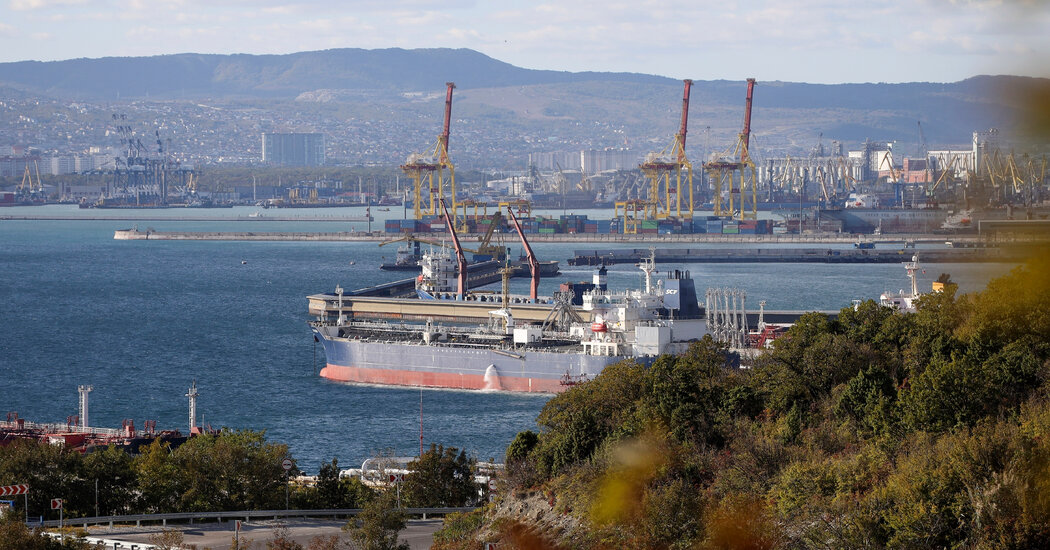European Union diplomats failed to agree Friday on the final details of a policy to help limit Russia’s oil revenues, senior EU diplomats said. Russia’s war in Ukraine.
For most of the past week, the ambassadors of the 27 EU members meeting in Brussels failed to agree on a top price that traders, shippers and other companies in the supply chain could pay for Russian oil exported outside the EU. the block is sold. The policy must be in place before an EU embargo on Russian oil imports takes effect on December 5. Talks will resume next week.
The embargo only applies in the block of 27 countries. So to further limit Russia’s financial gains, the group wants to put a cap on the amount buyers outside the region pay for Russian oil. That crude oil could only be sold outside Europe and would have to be below the agreed price. Russia has repeatedly said it will ignore the policy and analysts have said it will be difficult to enforce.
The United States and Europe have imposed sanctions on Russia since its full-scale invasion of Ukraine, cutting the country off from financial markets and making oil, its largest export, essential to financing the war. At stake is a complex and fraught effort by Ukraine’s allies to limit the Kremlin’s revenue from oil exports while avoiding fuel shortages, which would drive up prices and trigger a global cost-of-living crisis. would worsen.
The EU ambassadors have been asked to set a price of $65 to $70 per barrel and be flexible in enforcing the limit.
The measure of the price of Russian oil, known as the Ural blend, has traded between $60 and $100 a barrel for the past three years. In the past three months, the price traded from $65 to $75 a barrel.
The burden of enforcing and monitoring the price cap policy will fall on the companies that help sell the oil. Those global shipping and insurance companies are mostly based in Europe. According to maritime records, most of the tankers carrying Russian oil are in Greek hands. And London is home to the world’s largest marine insurance companies.
Some EU ambassadors, especially those from Poland and other staunch allies of Ukraine, said the price range proposed by the G7 was too high and the ceiling should be set much lower to harm Russian revenues, according to several EU diplomats who directly involved in or informed about the discussions. They asked not to be named because they were not authorized to speak publicly.
Ambassadors from those retentive countries also want the oil price cap to go hand in hand with clear and immediate plans for further sanctions against Russia – refusing to sign the cap without assurances that more sanctions are on the way.
Greece, Cyprus and Malta — which have serious interests in the policy because of their large maritime industries — had called for a higher limit, but agreed on a cap of about $65 a barrel on Friday, diplomats said.
France, Germany and Italy – the three EU countries that are members of the Group of 7 industrialized countries that set Russia’s oil price cap – along with a number of other EU members advocated the US position for a higher price cap and soft enforcement touch, diplomats said.
The European Union embargo on Russian oil that takes effect December 5 also includes a ban on European services from shipping, financing or insuring Russian oil shipments to destinations outside the bloc, a measure that would disable the infrastructure that carries Russian oil. to buyers around the world.
However, the price cap would allow these European shipping companies to ignore the embargo as long as they ship Russian crude oil outside the bloc at a price below the cap. Its enforcement would be left to the companies. Otherwise, they would be held legally responsible for violating sanctions.

